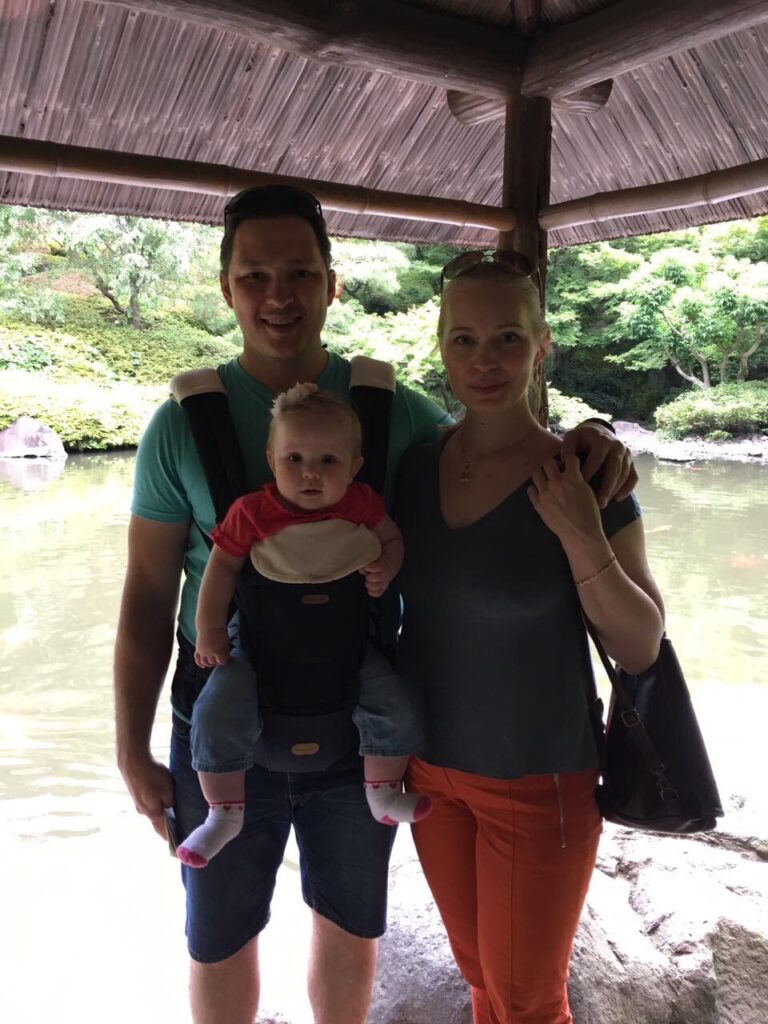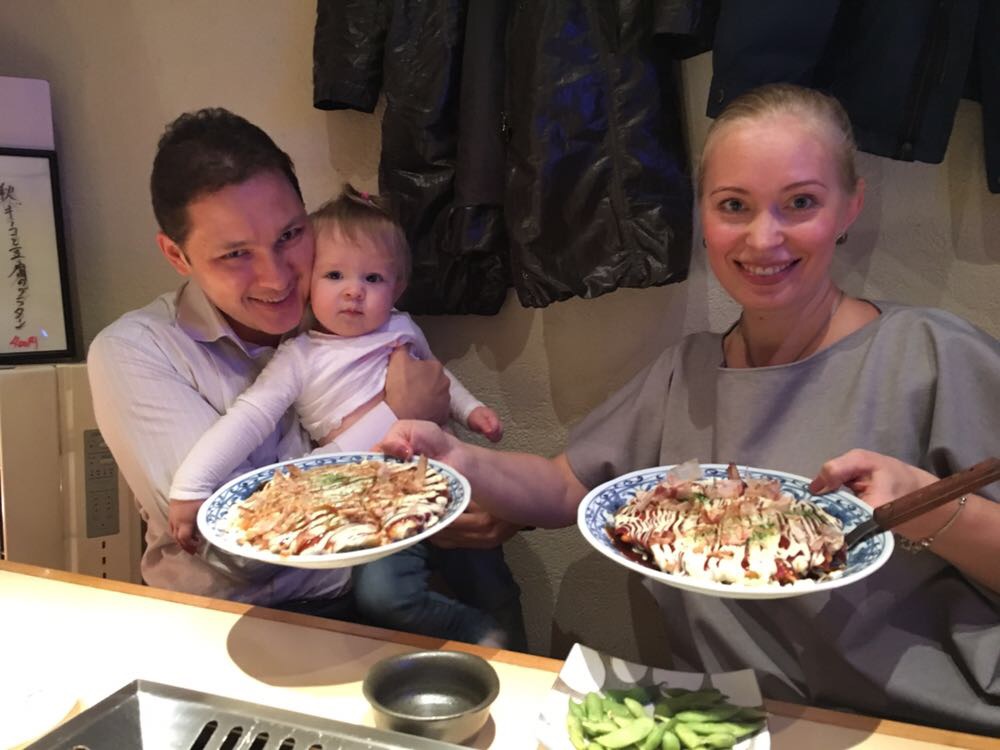
NOVEMBER 2019 (VOL.147)

Why do you live in Japan?
My husband works for a big Japanese company. He moved to Tokyo in February 2017 to get international experience and to share the best practice between two markets. Japan has a unique working culture, and this is a good opportunity to challenge ourselves and get valuable experience.

Why did you choose to live in Japan, not other countries?
Frankly speaking, we have never planned to live in Japan, because we lived far from this country and weren’t interested in this culture. So, when my husband got this offer from his company, we discussed a lot. And we decided that Japan is a perfect combination of difficult work experience for him and an excellent and safe environment for our little daughter and me.

What do you find different about living in Japan over the term compared to when you first arrived?
Honestly, I was afraid of being alone in Japan. But we were lucky to meet many fantastic people here, especially the expat community which helped and supported us. Unfortunately, I didn’t find Japanese friends the first time because of the language barrier. But now, we have a lot of Japanese friends. We invited each family to our “Russian pancakes party”, enjoying homemade pancakes with honey or jam. And I’m proud that I can make it using three pans at one moment! It is so fun to watch our guests’ reaction!
What do you appreciate most about Japanese culture?
I love the fact that Japanese people are so polite and ready to help you when needed. And I have never seen more admiration and love for children as I see in Japan. But so many strict rules and long procedures were strange, difficult and even weird for me. But now I understand that they, probably, are necessary for Japan to rich this high quality of life.
After moving to Japan, have you had any funny experiences?
My husband and I started to study Nihongo, the Japanese language. My husband can improve his Japanese at his office, but I can do it in usual environments only. One time, we visited some famous place and I decided to clarify the location of the elevator: “Sumimasen! Elebeitah wa doko desuka?” It was so fast and confident from my side that the staff started to explain to me in Nihongo without any hesitation. I was in shock because I didn’t understand a word. But I replied to him “Arigato gozaimasu!” and followed his direction.

Would you like to continue to live in Japan for the rest of your life, or do you think you will return to your home country? If so, why?
We enjoy living in Japan and exploring the country during this period of life. But we are likely to return to Russia. Our parents, elder daughter and friends live there. Though we’ve met many friends here in Japan, almost all of them are expats too and will have to go back to our homeland.
What is the distinctive difference between the Russians and the Japanese?
The difference is huge. Japanese people live under strict rules and are very law-abiding and diligent. Russians are more inventive when it comes to solving any problem, but are less disciplined.
Which places in Japan do you recommend that foreigners see?
Each place is beautiful on its own. I was born, raised and lived in a big city, so the spirit of Tokyo is familiar to me: its traffic, skyscrapers and crowds. The multi-level building system and the small parks hidden among high buildings amazes me the most. However, to really appreciate the spirit of Japan — the power of religion, the beauty of landscapes — you definitely need to go outside the city and visit the ancient capital Kyoto, Nara and other towns.
What are your favorite Japanese foods?
There are plenty of Japanese style cafes in Russia, so it seems that Japanese cuisine is only sushi, sashimi and miso soup. Upon arrival to Japan we discovered unexpected varieties of delicious food. We like shabu-shabu, takoyaki and okonomiyaki very much. I like the atmosphere of Japanese style restaurants and the process of handmade cooking!

V




